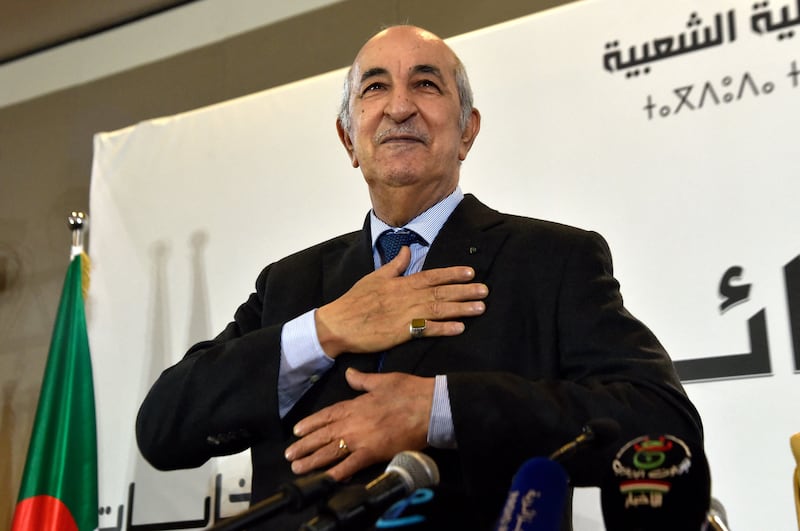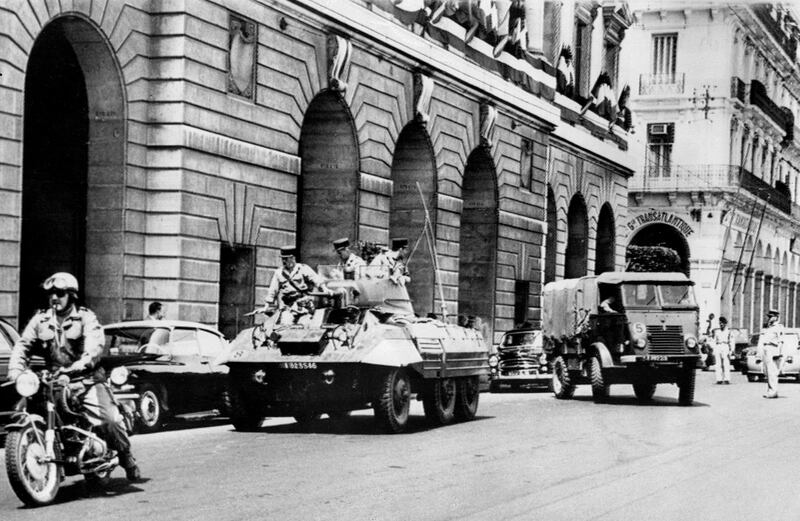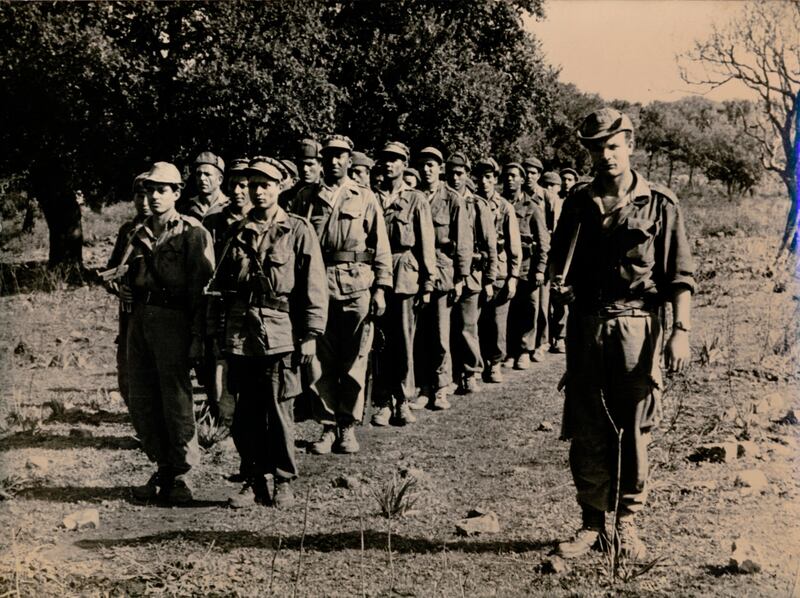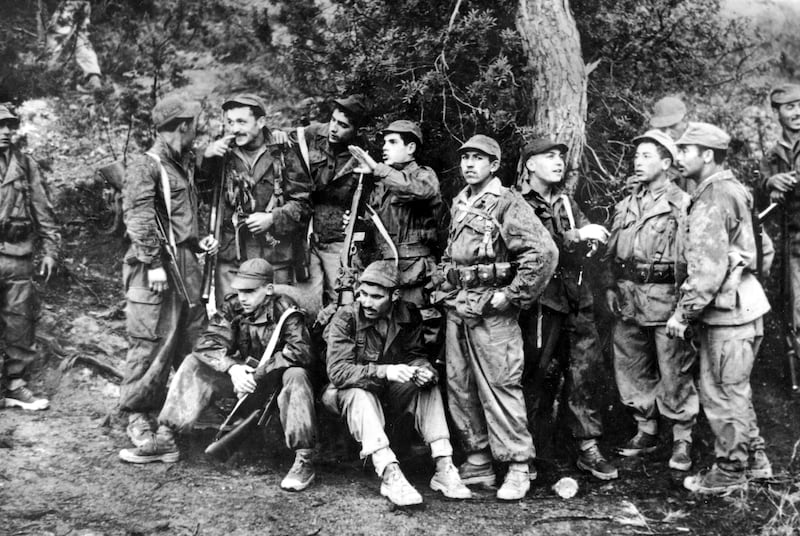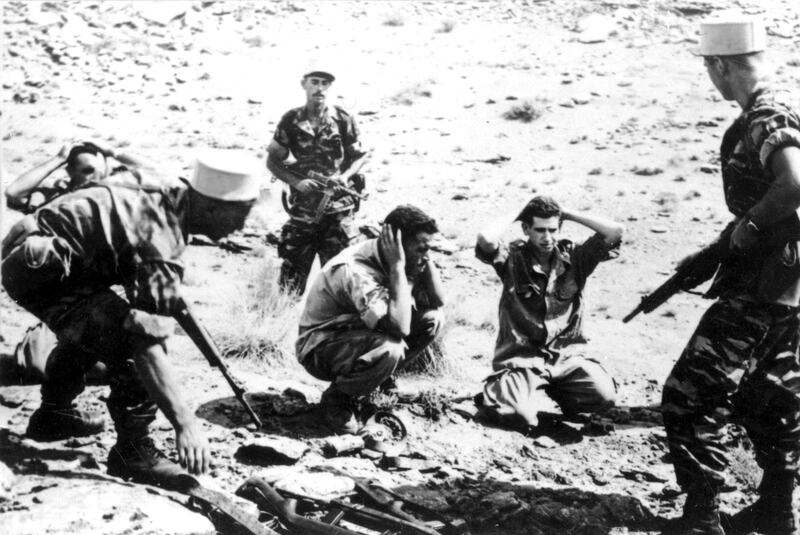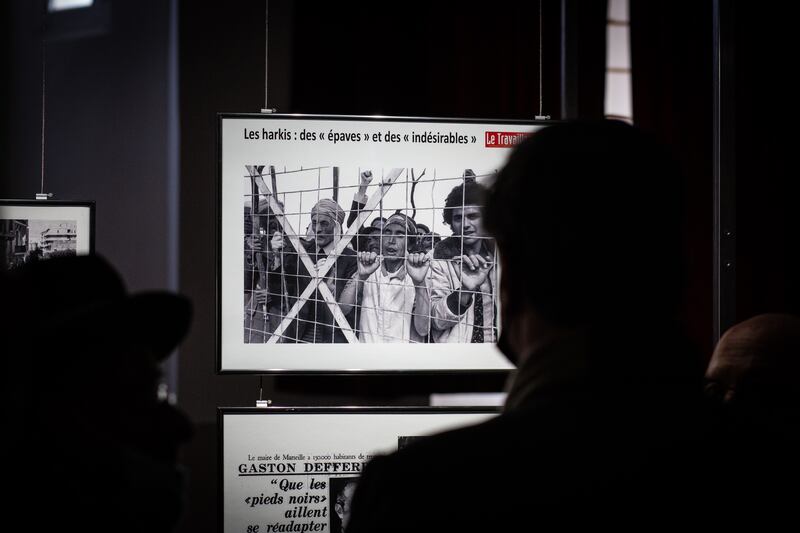The French President’s comments on Algeria this month represent a threat to the Algerian military’s attempts to maintain a veneer of democracy, a French politician and an Algerian journalist have told The National.
Emmanuel Macron’s remarks, in which he accused the North African state of "a hatred of France", came more than two years after widespread anti-government protests forced the resignation of former Algerian president Abdelaziz Bouteflika.
“I am tired of the emotional blackmail, which is constantly exerted by Algeria’s generals whose morality is far from undisputed,” said Member of the European Parliament Bernard Guetta, a veteran journalist who was elected in 2019 on a list supported by Mr Macron’s political party.
Mr Guetta worked on the European Parliament’s urgent resolution on human rights in Algeria in November 2020.
The Algerian army cancelled presidential elections in 1991 before they could bring Islamists to power, triggering a decade-long civil war. They are widely viewed as the only elections that reflected popular sentiment.
Mr Macron angered both Algeria’s ruling class and its pro-democracy movement, or Hirak, when he was questioned on October 4 on the existence of Algeria as a nation before it was colonised by France between 1834 and 1962. The president accused Algerian leaders of “rewriting” their country’s history based on a “hatred of France.”
Colonialism row
Historians and Algerian activists were quick to point out that many European countries did not exist as nation states in the early 19th century. Mr Macron’s words “seem to imply that if you weren’t a nation by that point, you don’t have legitimacy”, said Arthur Asseraf, a lecturer in the history of France and the Francophone World at the University of Cambridge. “What matters is what Algerians want politically today.”
Algeria’s presidency pounced on Mr Macron’s statement to denounce “an intolerable attack on the memory of martyrs” – a reference to Algerians killed under French occupation. Around 1.5 million Algerians died during the 1954-1962 war of independence alone. Algeria also banned French military flights over its territory and recalled its ambassador in Paris after Mr Macron's remarks.
President Abdelmajid Tebboune said on Sunday that the return of his country’s ambassador to France was "conditional on total respect for the Algerian state”. French Foreign Affairs Minister Jean-Yves Le Drian said on Wednesday that Paris respected Algerian sovereignty.
But the Algerian presidency has paid little heed in the past week to the second part of Mr Macron’s statement, in which he claimed that “the Algerian system is tired” and “the Hirak has weakened it.”
This was a “spectacular” break from France’s perceived conciliatory attitude towards Algeria’s rulers, said Algerian journalist Ihsan El Kadi, who heads Radio M and news website Le Magreb Emergent. “It’s a new political stage,” he said. “Algiers is not ready for it and reacted very violently.”
Mr Macron also described Algeria as a “very tough ... political military” system. In an opinion piece published on Saturday in French newspaper Le Monde, Lahouari Addi, a professor at Sciences Po University in Paris, wrote that such words were a “stab in the back” for the Algerian army.
Algeria is a democracy only in name because “the President is chosen by the military following an endorsement during which candidates accept to be decoys”, said Mr Addi. “The army is the sole source of power. This rule is challenged by the Hirak.”
The Algerian government has clamped down against Hirak leaders and critical journalists. Several, including Mr Al Kadi, were detained last June before legislative elections. “We never thought that repression would be this bad. It’s worse than before the Hirak,” he said.
It remains unclear when the Algerians will reopen their airspace to French military planes, which are engaged in sub-Sahara alongside 5,000 French soldiers on the ground in a battle against insurgents. Algeria's retaliatory move was "highly symbolic", said Mr Al Kadi.
The two countries are also engaged in a row over visa restrictions, with France accusing Algeria of not receiving illegal Algerian immigrants after their expulsion and Mr Macron threatening to stop delivering French visas to Algeria's leaders. "Not many people here in Algeria believe Macron will actually target them. It's hard to verify unless they actually published lists of names," said Mr Al Kadi.
Though many analysts have explained the timing of Mr Macron's statements on Algeria by his desire to boost his popularity in France before presidential elections, Mr Guetta said they stemmed from several failed attempts to establish a "dialogue in good faith."
Only time will tell if Algerian protesters will be receptive to Mr Macron’s attempt to distance himself from the Algerian ruling class.
“These generals are not the future of Algeria,” said Mr Guetta. “The future of Algeria is among Algerians of all age and social condition who have been asking for so long for freedom, democracy, honesty, the rule of law and the end of a predatory dictatorship.”
